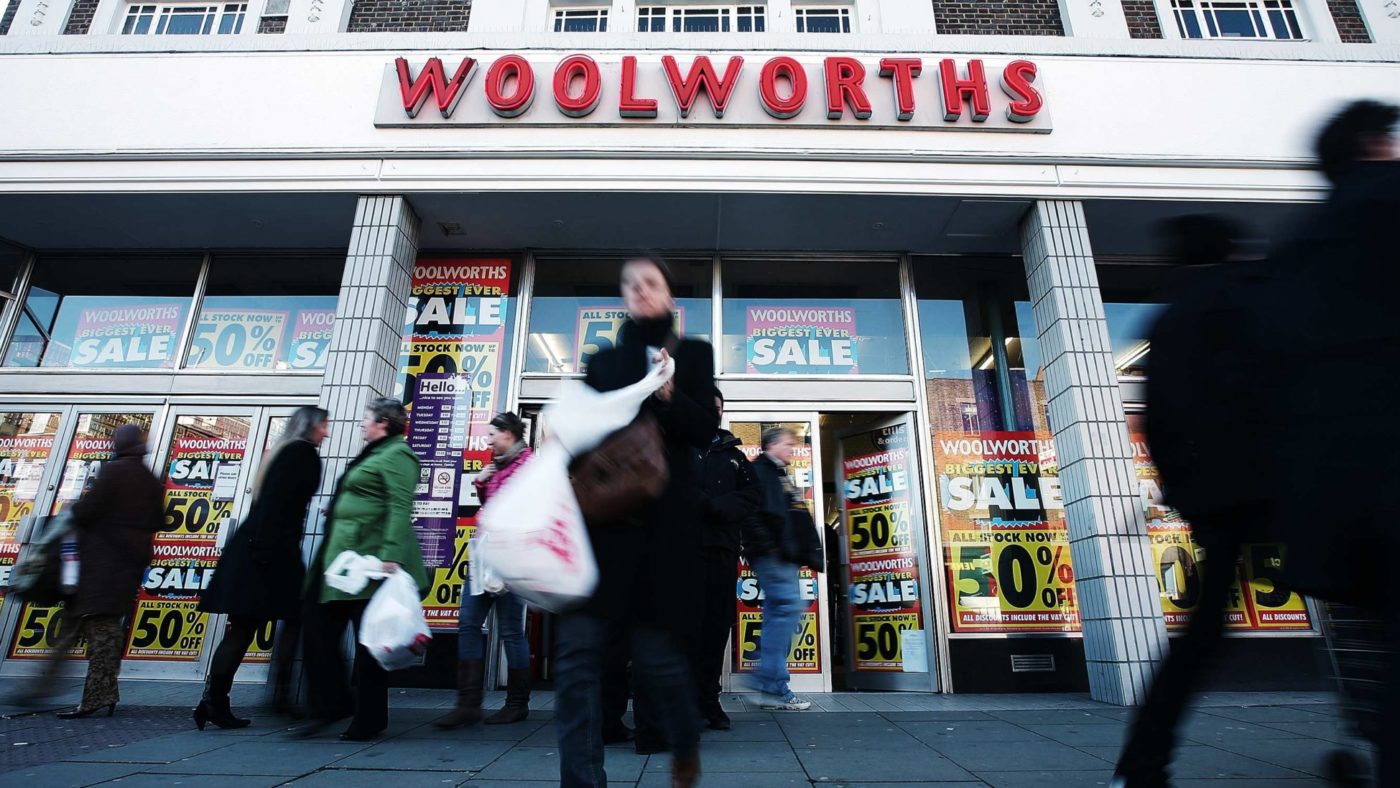Top-down attempts to “rebalance the economy” have failed so many times that politicians proposing further interventions should think twice before doing so. Unfortunately, they show no sign of stopping.
Philip Hammond and Ruth Davidson have both lent their support to a new tax on business. Both floated the idea of an “Amazon tax” — a special levy on online sales, to “save the British high street” and “level out the playing field” between web giants and small shops, in the Chancellor’s words.
I doubt would-be dirigistes will find this proposition a difficult sell, either to Parliament or the general public. Politicians of all stripes love claiming to stand up for the little guy — in this case, the noble, beleaguered UK high street against the murky world of online retail — and ideas of justice and fair play are deep-seated in the British psyche. But couching policies in the language of equality doesn’t necessarily make them fair.
These proposals will also be aided by our national tendency to regard the high street with a wistful, and often unmerited, affection.
Nowhere is this clearer than in Britain’s love affair with that classic high street anachronism — Woolworths. With its tightly-packed aisles of mismatched merchandise, a trip to Woolies could be a surreal experience. Unsurprisingly, a store selling everything from thongs to army knives to pic n’ mix had little in the way of clear brand identity. It did painfully little to move with the times, unlike high street siblings like John Lewis. Yet, in spite of all this – perhaps for old times’ sake — the decline of Woolworths in the mid-noughties was mourned like the passing of a much-loved relative or favourite pet.
There is more than a hint of this rose-tinted sentimentality at play in recent proposals for taxes on the digital economy; but nostalgia and politics are a dangerous mix.
We risk forgetting, in our righteous anger, logical reasons why online firms pay less tax than physical shops.
Business rates are levied according to the market value of property businesses own — which explains why a department store on prime real estate in Oxford Circus will end up paying higher rates than a company like Amazon, operating from out-of-town warehouses in areas of lower property value.
Indeed, the genius of Amazon’s business model hinges on this very lack of physical presence. It allows them to bypass many of the additional costs associated with bricks-and-mortar outlets. These savings translate into gains for the consumer in the form of lower prices, and in Amazon’s case, added convenience — all of which drives productivity and new forms of consumption by freeing up time and expenditure for other uses. What’s not to like?
The government, however, is retroactively changing the rules of engagement, pointing at online retailers’ decision to avoid expensive real estate and saying, “Well, that’s not fair.”
It’s akin to a swimmer pioneering a new form of breaststroke that will shave seconds off the world record time — only for a change in the rules to bar them from competing. Seen in this light, the Chancellor’s remarks are less a question of levelling the playing field — and rather more “all must have prizes”.
Likewise, any special tax which seeks to punish online firms for their competitive advantages may equalise outcomes in the short term — but at the expense of consumer welfare and future innovation. In the long-run, this would be a perverse way to approach Britain’s thriving digital sector, the biggest driver of growth in our economy — particularly at a time when competitors around the world are moving to attract tech start-ups into their markets.
There is no question that Amazon minimises its tax burden as far as possible. Yet, given that it apparently does this legally, making use of existing loopholes, this example provides a stronger case for reforming and simplifying corporation tax than trying to develop a whole new tax base.
None of this is to say that high street shops don’t face huge obstacles to success — they emphatically do. But government’s priority should be on removing the obstacles (some of which are state-imposed) that make it harder for physical shops to compete.
For a start, local councils should reconsider the ways in which they have made shopping in city centres a needlessly expensive and torturous experience for many would-be buyers.
We should also consider tactical reforms of business rates. By focusing on rental, rather than land value, our current setup creates perverse incentives by penalising shopkeepers looking to drive sales by refurbishing or converting their premises. In a retail environment where consumers are increasingly favouring experiences over products, our tax code should not disadvantage retailers trying to tap into the “experience economy”, for example, by converting part of their bookshop into a cafe, or installing a nail bar in their clothes shop.
Perhaps most importantly, the high street must adapt to 21st century shopping habits. Unlike the housewives who fuelled the British High Street boom in the 1960s, most modern women work full-time and require shops that stay open past 5 or 6pm. It’s no coincidence that most online shoppers are women. Yet many high street retailers routinely stay open all morning with virtually no customers, then close their doors while most people are still in the office. Why?
In this climate, our strict Sunday trading legislation seems less a quaint throwback — and more an actively harmful, anti-competitive dinosaur. Relaxing these laws would genuinely help level the playing field for retailers competing with e-commerce.
There will always be losers when technological change rears its head — but we should not be afraid of creative destruction. Remember, the same transformative process that leaves Woolworths and their ilk by the wayside also breeds the innovative, consumer-centric companies of the future — both on and off the high street.


